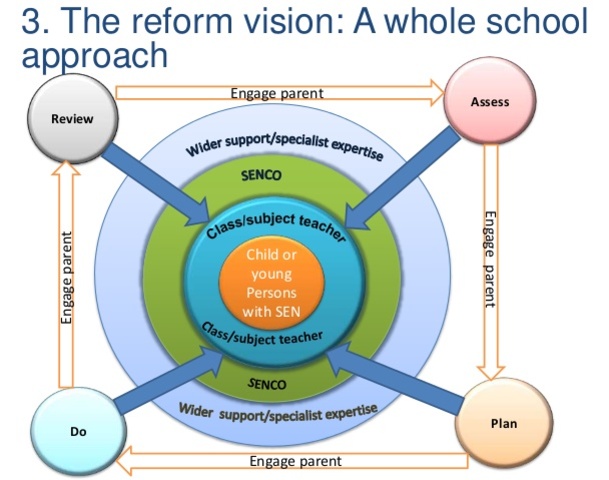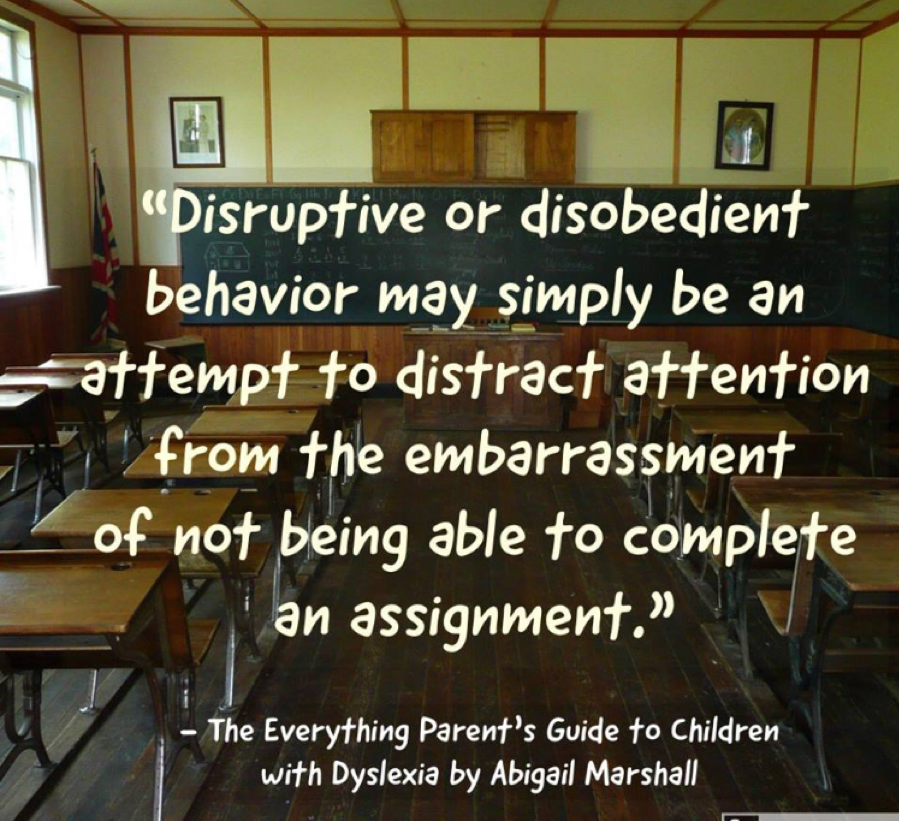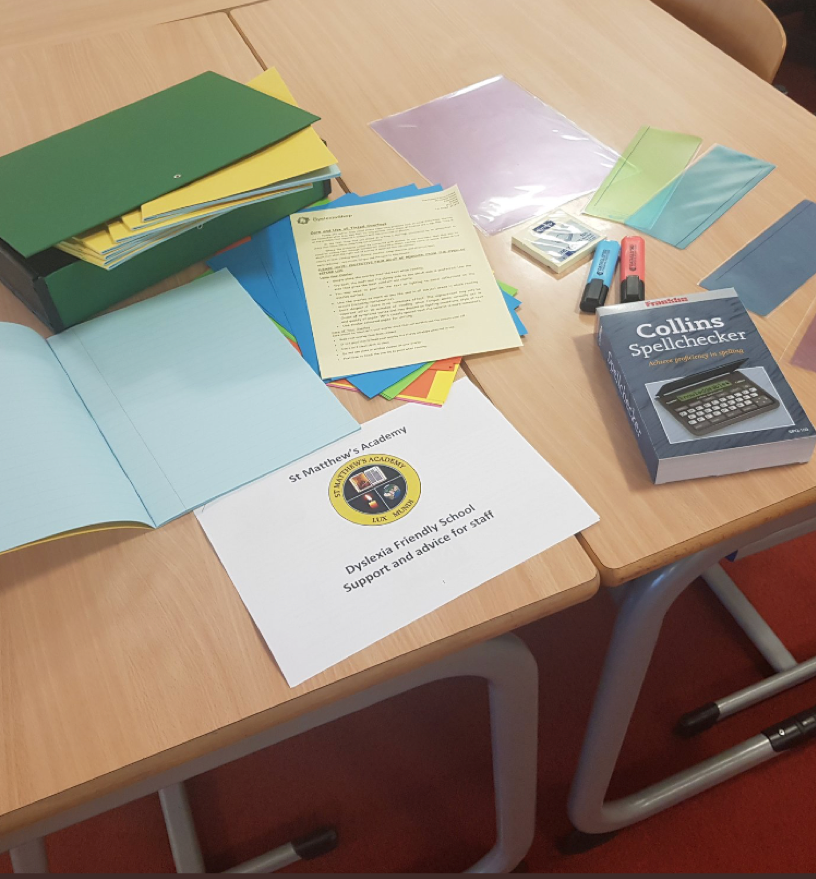
How can I approach and work with my child’s school?...
If you are worried about your child’s progress at school firstly talk to your class teacher or year tutor. The school should be able to offer advice and support and work with you to help your child.
If you feel that your school is not providing suitable support or does not recognise the needs of your child it is important that you keep asking. It may be that the school does not have adequate funding or suitably trained staff, however they have a duty to meet the support needs of your child.
It can feel like a battle sometimes, if you prepare for school meetings, document evidence of the need for support and keep records of your child’s progress this will help you.
Our friend John Hicks has written some really useful tips on ways to successfully negotiate support for dyslexia at school. As a parent we feel our child’s frustrations and it can be difficult to control emotions. Click here to read more.
Our friend Dyslexia Deb has written a very helpful blog to answer the question, Should my dyslexic child get help at school? Click here to read more.
The Dyslexia Association has kindly shared with us some really useful information sheets that will help you communicate effectively with your child’s school.
Talking to schools …. Download here
Preparing for meeting the school ….Download here
Questions to ask a secondary school …. Download here
It’s hard for parents to know what to do for the best. Parents are very respectful of teachers and headteachers and trust them with the well-being of their children. However, parents can see that sometimes testing such as SAT's can cause anxiety and loss of self-esteem, to read a blog and legal advice about your right to withdraw your child from testing click here.
Dyslexia Action have a very useful step-by-step support guide for getting help from your school which gives information about the type of help available and what you child is entitled to.
IPSEA provides advice with regard to obtaining the support your child is legally entitled to and help you with asking for this. For example they provide model letters, a ‘jargon buster’ and help line you can phone for individual enquiries.
The Information, Advice and Support Services Network (IASS Network) can also provide support and may be able to arrange for one of their representatives to attend a school meeting with you should you feel that a third party will be helpful. To find your local service click here
Brendan Wignall chair of CReSTed says ‘When selecting a school for a child with dyslexia, the school’s ethos speaks louder than all the official documents’ her article in SEN magazine may be useful If you are fortunate to have a choice of schools to apply to. To read the article click here
A full diagnostic assessment is not normally carried out by schools as it is not usually considered a reasonable adjustment. However, the school must be recognising and meeting need. If the child is not making progress then needs are not being met and the school should be escalating up with seeking advice from outside agencies, e.g.educational psychologist, specialist assessor, in full consultation with parents.
A school may say they do not recognise a professional diagnostic assessment “Pay for an assessment - you’ll be told what you want to hear” BUT:
Schools should accept any report by an appropriately qualified professional, regardless of source. If that professional identifies a difficulty that has a ‘significant impact’ on the child’s life (i.e. a below average reading score) then the Equalities Act (2010) makes it very clear that the school must not treat that child unfavourably compared to another child (i.e. a typical child that can read at an average level in relation to peers) and that they must put in place ‘reasonable adjustments’ (e.g. a reader in an exam) such that the child is not treated less favourably than others. To ignore findings of significant impact and not take reasonable steps is, in the definition of the law, discrimination - if the findings suggest below average capability of functioning (in any aspect), the school has a statutory duty to do something.
Some parents may feel able to home educate their child if they are struggling at school. Deciding to home educate your child is a big commitment, and not one that suits every family. But it needn’t be a straight choice between home educating or sending your child to school Flexi-schooling – where a child attends school for part of the week, and learns at home for the rest of it – is an ideal compromise for some families, and becoming increasingly popular.
Flexi-schooling is an agreement between the parent and child's head teacher to take the child out of school for sessions to participate in other activities. Flexi-schooling is designed to be an affordable, temporary option in place of specialist or private schooling. Schools do not suffer loss in any way, as they still get full funding for the pupil, the pupil's attainment raises and Ofsted attendance ratings are not affected. The student still enjoys everything at School whilst getting the extra tuition they need in a safe & supportive environment catering for their learning style.
Click here to find out more about flexi schooling. The closed Face book group Flexischooling Families UK might also be useful to join.
Small things can make a big difference to a child’s experience at school. For example a simple sticker on a homework planner to show subject teachers and supply teachers explaining that reading out loud is difficult. This was shared by a mum who’s child has just started secondary school. The notice was shown to each new teacher and then supply or visiting teachers at the beginning of each lesson

Learning a foreign language can be difficult for dyslexic children. Some may languages may suit one learner more than another. However, although it is part of the National Curriculum it is possible to dis-apply if a child is struggling due to dyslexic difficulties with their own language so that a child does not have lessons or exams in that subject. This would need to be agreed with the school, but it can take the pressure off, so that time can be spent working towards a goal where the child is more likely to succeed.

Click here to go to the SEN code of practice which provides statutory guidance on duties, policies and procedures relating to the Children and Families Act 2014
Click here to go to an explanation of the role and duties of a Special Needs Coordinator or SENCO
Click here to read government guidance to help schools to understand how the Equality Act affects them and how to fulfill their duties under the Act.
“Every school is required to identify and address the SEN of the pupils they support. They MUST use their ‘best endeavours’ to make sure that a child with SEN gets the support they need” Chapter 6.






